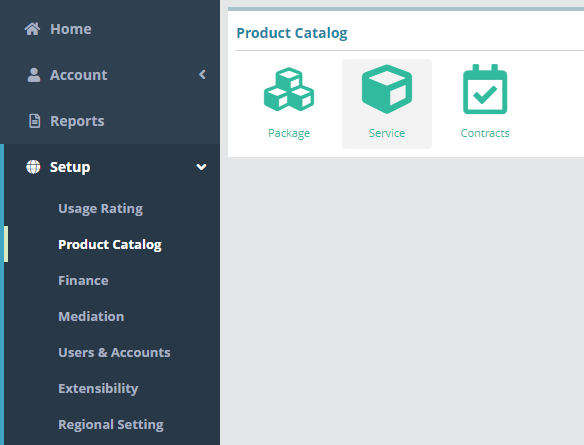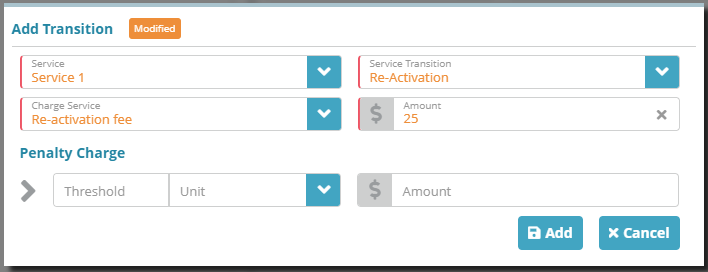Summary
Service transitions allow you to charge a fee when a service transitions from one status to another (e.g. pre-active to active). When configuring package frequencies you can setup transition charges based on the transitions you create, for instance applying installation fees, activation fees or re-activation fees as service statuses are changed.
In this example we are going to add a transition for the “Suspended” service status that was created in the Service Status Configuration Example. The transition we create will allow the “Suspended”, “Non-Billable” status to transition to an “Active”, “Billable” status.
If you want to look up additional details on the fields and options presented on the service transitions screen see the Service Transitions screen help article.
Prerequisites
Service statuses needs to be configured before service transitions can be setup
Sample Configuration
Log into the LogiSense Billing application
Click on Setup , Product Catalog and then Service
Next click on the Service Transitions tab in the upper right
Click the
 button to add a new service transition
button to add a new service transitionEnter a Name to describe the transition and then set the From Status to Suspended and the To Status to Billable and click Save
Result
Setup / Product Catalog / Package / Packages / Edit Package Frequency / Add Transition
A transition can now be setup on a package frequency under a package. When the service configured on the transition transitions (e.g. the service is changed from ‘Suspended’ status to ‘Billable’ status) the charge amount set on the transition will be applied.
In the image below a reactivation fee of $25.00 has been setup which will apply when Service 1 is Re-Activated (switched from a Suspended status back to a Billable status).
Next Steps
After service types, statuses and transitions have been defined you can proceed to configure services. For an example configuration see the Service Configuration Example article




